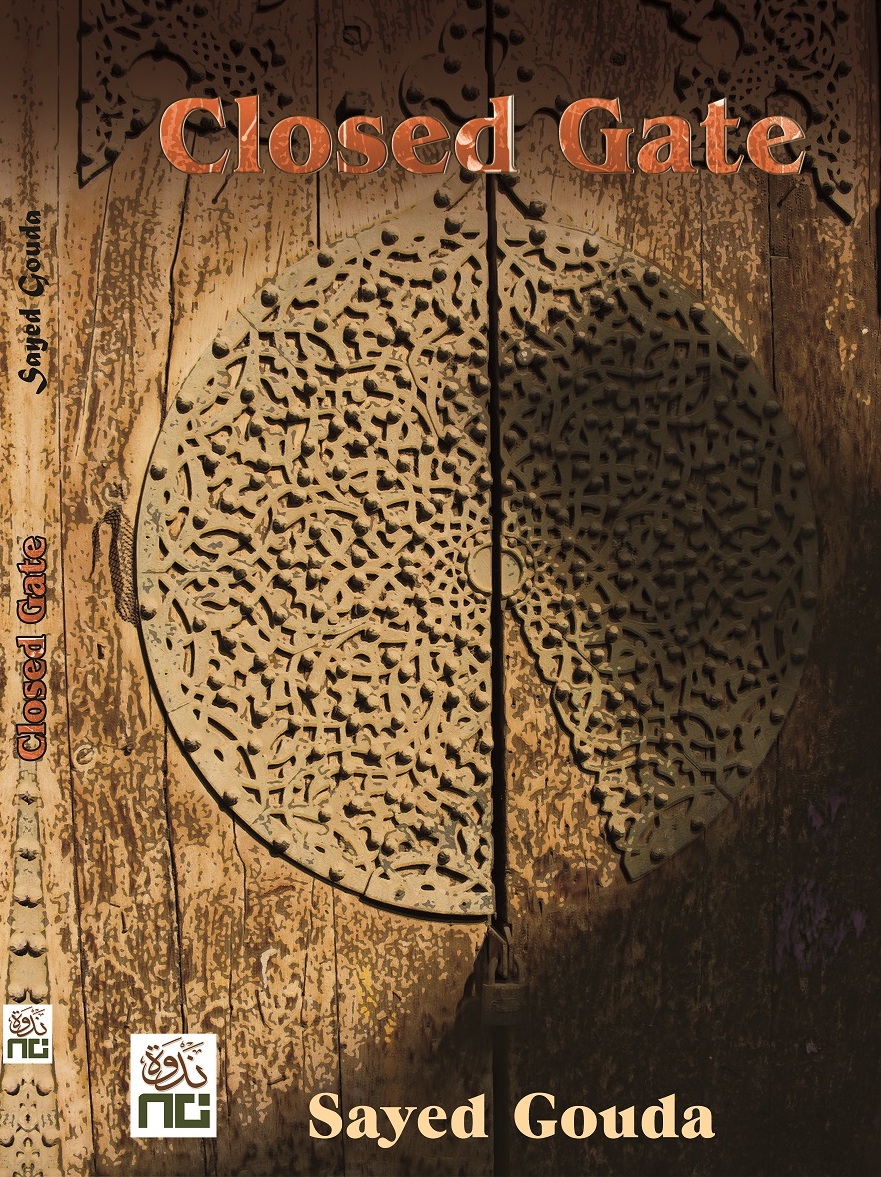 |
 |
 |
| Poetry | Voice of Poetry | Fiction | Book Reviews | Articles | Interviews | Contact | About the Poet |
|
American University in Hong
Kong Run by Beijing Loyalists!
Who is Running Upper Iowa
University? And Who is Running My Life?
Sayed Gouda
Hong Kong, 22 April 2015
News about infringements by
the Chinese government on life in Hong Kong is a
daily feat now. We read the news and shake our
heads, perhaps even protest against it. Still,
many of us on the margins cannot imagine that it
could interfere with our own lives. I am writing
this article to share my story and my concern
about the ways in which Beijing politics has
changed my life.
After I received my PhD in Comparative
Literature in July 2014, I applied for jobs at various
universities. In December 2014, I was offered a teaching
position in Modern Chinese Literature at Beijing Normal
University (BNU). I accepted the offer and turned down
another teaching position for this. Everything except for
housing was finalised, and BNU communicated the urgency of
arriving in Beijing as early as possible. Shortly after
this, I launched my new novel Closed Gate on January
25 at the June 4th Museum in Tsim Sha Tsui. The
novel partially addresses the Chinese student demonstration
and the Tian’anmen crackdown in 1989, as well as the
Palestinian first intifada during the same year.
Although the novel was in no way meant to be a political
statement of any kind, to my surprise, it attracted a lot of
attention from the Chinese media. Inadvertently, instead of
focusing on the story proper, I was almost exclusively asked
about the Tian’anmen issue. Having been there myself at the
time, I naturally shared my experience and some of my
photos. I also gave a few interviews. Since I did not feel I
had anything to hide after all this time, I willingly and
honestly answered all the questions. However, one week after
the launch of the novel, BNU suddenly rescinded the job
offer on the pretext that they could not issue a work visa
for a Hong Kong passport holder. They were also not open to
other suggestions and further inquiries did not yield
anything. It is not difficult to comprehend that the
Chinese government forced the decision. Their decision,
though absurd and deplorable, is not unexpected considering
the recent political climate and growing infringements on
freedom of speech in China.
What is much harder
to understand is what happened to me subsequently. I was
introduced to the Hong Kong campus of Upper Iowa University
(UIU) and was interviewed for a part-time teaching position
by Ms Tracy Lai, the Assistant Director of the UIU Hong Kong
Centre, on March 2. Ms Lai offered me to teach a course
starting in June. She
gave me her name card and a schedule of the current term and
explained the course organization at UIU, the pay scheme,
and other details. She said she
would send me the schedule of the new term within a week or
two. After four weeks of
not hearing from her, I wrote to her on March 30, but
received no reply. I called her office on March 31, but I
was told that she was not in the office and that the staff
himself did not know when she would be there. I suspected at
that time that her silence might have something to do with
my novel, and that it became an issue after she looked at my
CV. But I gave her the benefit of doubt and, on April 2,
wrote instead to her senior supervisor, Ms Alice Hung, Vice
President of UIU in Hong Kong. I asked her to tell me the
new term schedule because I had planned to participate in an
academic conference in Australia in July and needed to know
my schedule in order to book my flight tickets. There was no
reply from her either for more than eight days. I called
again, but again I was told that they both were not on
campus and the receptionist did not know when they would
ever come to work. They had suddenly fallen silent for more
than six weeks without answering my emails and phone calls,
as though they had never interviewed me or offered me a job.
This unprofessional and irresponsible attitude confirmed my
suspicion
that their sudden silence is related to the publication of
my novel. It is reminiscent of the typical response by the
Chinese government to the Tian’anmen massacre and many other
events in the past and in the present.
By then, I had no
more interest teaching at UIU, but considering that UIU is
an American university and prides itself in freedom of
speech, I decided to expose what seems to me a strong
pro-Beijing policy. I wrote to
Dr Ismael Betancourt,
the Vice President
for International Education of UIU on April 14, expecting
him to clear up the issue right away. Eight days passed
until he replied, stating that this delay is an exception in
their administration and that they do value freedom of
speech. He apologised and asked Ms Lai to reply to my
emails. Why did it take eight days to reply? Naturally, it
seems to me that they took the time to figure out how to
take back their offer without causing suspicion that their
decision is political. Ms Lai finally wrote to me with
exactly the answer I had expected from her—that
there was no available course for me now and that she would
contact me in the future. I just had to smile to myself.
While it is unthinkable that an American
university should be controlled and monitored by the Chinese
government, this unthinkable seems to have become a fact.
The implications of this Communist hegemony are more serious
than just controlling university job recruitments. It means
that soon enough, this Communist hegemony will infiltrate
into every aspect of our lives here in Hong Kong, whether we
like it or not.
When an American university that is
supposed to be independent and supportive of freedom of
speech, kowtows to Beijing, one has to ask, ‘What does the
future hold for Hong Kong people? What power does the
Hong Kong government have to protect the rights of its
people when even an American pilot campus seems to be under
the spell of pro-Beijing censorship?’ We
have recently seen how Hong Kong police used excessive force
to supress the peaceful demonstrators during the Umbrella
Revolution, and how the Hong Kong government has completely
taken the side of the Chinese government. We have seen how
Hong Kong is being bought up piece by piece by China, and
how some local newspapers are gradually giving in to
censorship. When Hong Kong loses freedom of speech and
democracy, and when we have to submit to Beijing’s will in
every detail of our life, what is left to remind us that
this is Hong Kong, the city that was once an icon of freedom
of speech, democracy, and human rights?
To some people, freedom of speech means
very little, so long as their business is flourishing.
However, one does not know the value of what one has until
it is lost; and one does not know what one misses if one
never had it in the first place.
On April 13, Varsity published an
English article about me entitle ‘Sayed Gouda—The Poet Who
Will Not Be Silenced!’ A week later, my website, which is
only for literature and has nothing to do with politics, was
blocked not only in China, but its main page does not open
any more even here in Hong Kong. On the same day, a police
officer rang my home bell authoritatively. He showed me a
sketch of a Chinese man and asked if I have seen him before.
He asked me some strange and unrelated questions about my
home life and left without asking my neighbours the same
questions. Obviously, I was the only one he came to visit—in
a building with hundreds of families!
By spying on my email accounts, blocking
my literary website, taking away job opportunities, and
inflicting some other harassments that I do not wish to
disclose now, the Chinese government tries to silence me and
deny me my right to freedom of speech. According to the
Basic Law, Article 27 states that ‘Hong Kong
residents shall have freedom of speech, of the press and of
publication; freedom of association, of assembly, of
procession and of demonstration; and the right and freedom
to form and join trade unions, and to strike’.
Article 34 states that ‘Hong Kong residents shall
have freedom to engage in academic research, literary and
artistic creation, and other cultural activities’.
I insist on exercising my rights in
accordance with the law. I can only remind Hong Kong people
of what John F. Kennedy once said: ‘The rights of
every man are diminished when the rights of one man are
threatened!’
Comments 发表评论
Commentaires تعليقات |